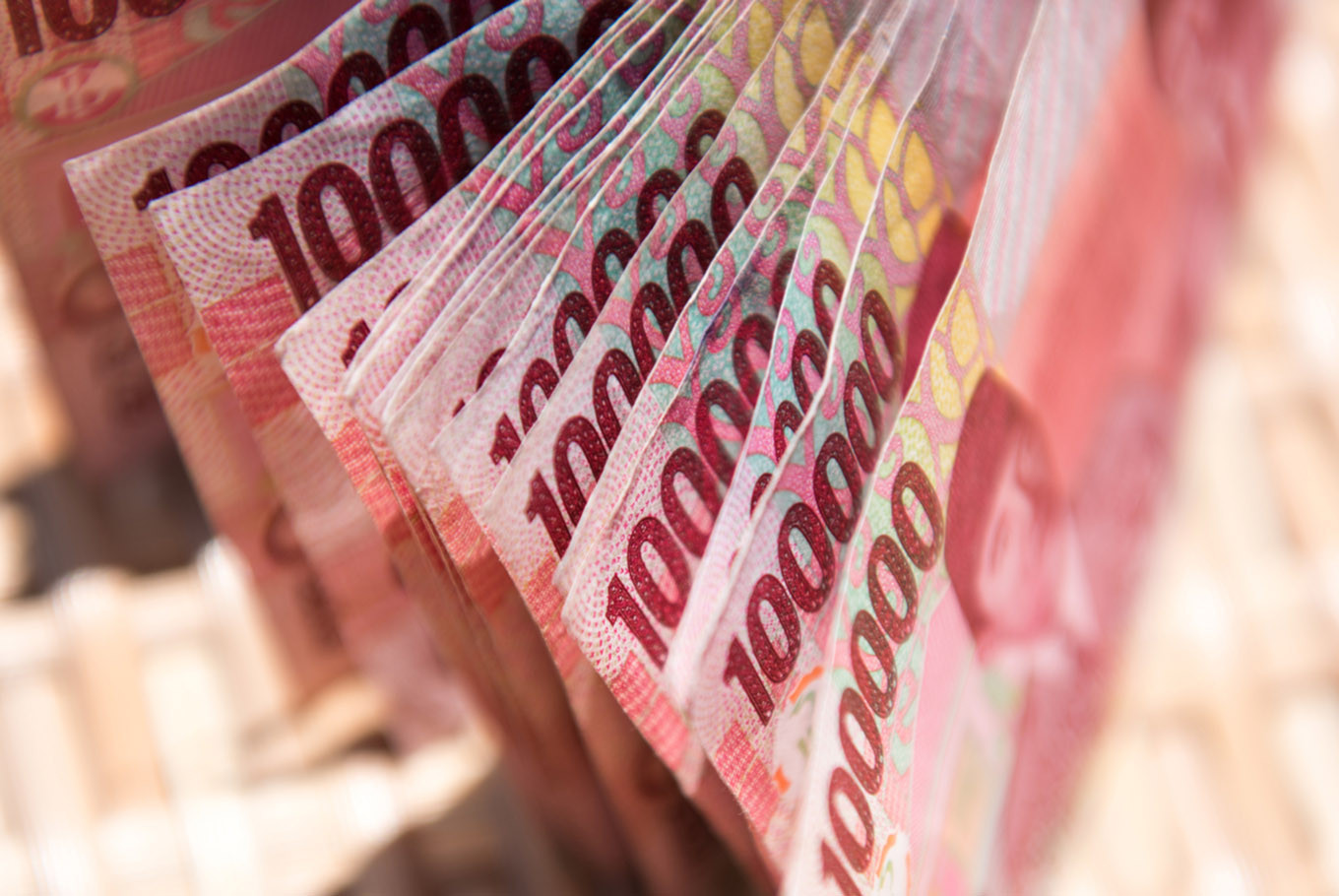Popular Reads
Top Results
Can't find what you're looking for?
View all search resultsPopular Reads
Top Results
Can't find what you're looking for?
View all search resultsRupiah at weakest since 1998 crisis as foreign investors pull out amid virus fears
Change text size
Gift Premium Articles
to Anyone
T
he rupiah touched levels unseen since the 1998 crisis on Wednesday as fears of a global recession over the rapid spread of COVID-19 prompts investors worldwide to dump financial assets.
The local currency depreciated around 0.3 percent to Rp 15,222 against the US dollar as of 12:52 p.m. Jakarta time, Bloomberg data shows. The last time it touched the level and reached Rp 16,650 was in June 1998 after widespread rioting that led to the downfall of president Soeharto, who led Indonesia for 32 years.
The rupiah is now Asia’s worst-performing currency after depreciating around 10 percent so far this year from Rp 13,635 per US dollar on Jan. 24, a time when the rupiah was Asia’s best-performing currency.
“Investors are fleeing out of the emerging market into safe haven assets because they fear that the probability of a global recession has heightened,” Bank Permata economist Josua Pardede told The Jakarta Post.
Read also: Indonesian stocks succumb to the red despite global market jumps
Foreign investors have dumped more than US$4 billion from rupiah bonds this year, on course for the biggest quarterly outflow ever, and have dumped about $600 million worth of shares, Bloomberg reported.
The benchmark Jakarta Composite Index (JCI), the main gauge of the Indonesia Stock Exchange (IDX), has lost 31.25 percent of its value year-to-date (ytd), suffering three trading halts within a week as the index dropped 5 percent, triggering a circuit breaker.
Josua said the rupiah’s depreciation was also influenced by the fact that the government had yet to allot a significant amount of funding from the state budget to tackle the virus. This is despite the government having allocated Rp 120 trillion ($7.7 billion) to stimulate the economy and cushion economic shocks from the COVID-19 pandemic.
“From the government’s stimulus package, there has yet to be a special budget dedicated to tackling the virus,” he added.
Read also: Disappearing act: Market braces for volatile March after $2.4b vanishes in a week
The pneumonia-like illness has infected at least 227 people in Indonesia and killed 19, giving the country the highest death toll in Southeast Asia and the highest death rate in the world. Worldwide, the number of confirmed cases has reached more than 202,000 people with more than 8,000 deaths.
As the situation has yet to show signs of improvement, Josua said Bank Indonesia (BI) should maintain close contact with foreign investors to give them assurances. At the same time, he also suggested that the central bank continue its market intervention in the bond market.
“We hope BI can come up with significant policies that can complete the fiscal stimulus,” he said.
He projected the rupiah to continue to fluctuate at around the Rp 15,000 level until the COVID-19 situation improves.
BI cut its policy rate and announced five measures to stabilize the rupiah, including buying government bonds in the secondary market and cutting the reserve requirement ratio for banks’ dollar funds.










